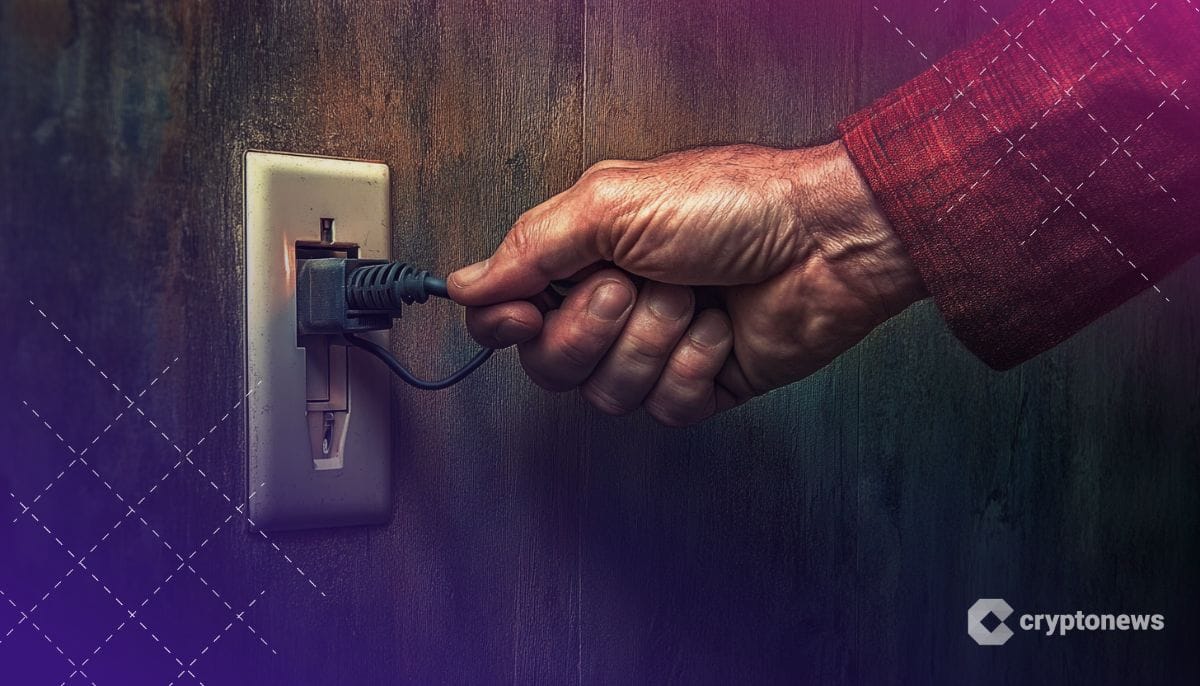Abkhazia Cuts Citizens’ Internet Access in Bid to Stop Crypto Mining

The government of the de facto state of Abkhazia disconnected the entire republic from the internet for seven hours on December 10, with crypto miners blamed for crippling power shortages.
The Russian news agency Interfax and the media outlet Vse42 reported that Abkhazia’s internet providers all cut network access from midnight to 7am “throughout the republic.”
Abkhazia Desperate to Stop Crypto Mining
Abkhazia, located in the South Caucasus, is recognized as an independent country by Russia and its allies.
Most Western nations, however, consider it to be a breakaway part of Georgia. Russia backs its ruling authorities, although tensions have frayed in recent months.
Moscow has previously provided Abkhazia with power to help fight an energy crisis that has caused years of blackouts and unstable networks.
Illegal crypto miners have been blamed for the power crisis. But despite the government’s efforts to crack down on miners, private mining operators have proved hard to track down.
These power shortages typically intensify in the winter months. This year has arguably been the worst yet, with daily blackouts now a regular occurrence in many areas.
The “energy crisis” has forced the Abkhazia government to shut all schools and kindergartens for a week.
Mining Farms Use 40-45 MW of Power, Say Authorities
Acting Abkhazia Prime Minister Valery Bganba said the state-run energy security agency ordered the internet providers to act in unison.
An Orthodox Church in Abkhazia. (Source: Sashka Denisov [CC BY 3.0])Bganba said that Abkhazia-based crypto “mining farms” consume “about 40-45 MW” from the republic’s “general” energy “system.”
“The energy used by crypto miners is half – or even a little more – of the republic’s energy deficit.”
Timur Dzhindzholiya, CEO of Chernomorenergo, the state-owned power company of Abkhazia.Timur Dzhindzholiya, the head of Chernomorenergo, Abkhazia’s state-owned power provider, has urged parliament to seek solutions from Russia.
Relations between Moscow and Abkhazia have deteriorated in recent weeks after the republic’s parliament voted against ratifying an investment agreement with Russia.
Protests Shake Republic
Opposition-led protests followed. And Dzhindzholiya claimed earlier this month that Abkhazia could be left in the dark without Russian power.
Dzhindzholiya said that locally generated power would only suffice to provide the republic with “seven to eight hours of light per day.”
“The rest of the time,” he warned, “there will be no power to provide.”
The news agency reported that the government of Abkhazia is “currently considering introducing a state of emergency in the energy sector.”
The government has not ruled out further internet outages or power restrictions.
“Even in this extremely difficult situation, illegal mining continues. This further aggravates the crisis. The entire population of the country is suffering from this crisis today.”
DzhindzholiyaCustoms officials claim that smugglers continue to bring mining rigs across the border with Russia.
The entire Caucasus region has been blighted by power shortage issues in recent years, with crypto mining taking the blame in most areas.
In the North Caucasus area, Dagestan power providers have spent much of 2024 hunting illegal crypto miners.
The head of the Dagestan regional government successfully petitioned Moscow to enact a temporary ban on crypto mining in the republic.
This has resulted in a total ban on crypto mining in Dagestan in the winter months until 2031.
In Georgia, residents of a rural town were obliged to take a sacred vow to stop crypto mining in late 2021.
Crypto mining-related power shortages are also causing energy grid issues in many parts of Siberia.
The post Abkhazia Cuts Citizens’ Internet Access in Bid to Stop Crypto Mining appeared first on Cryptonews.



